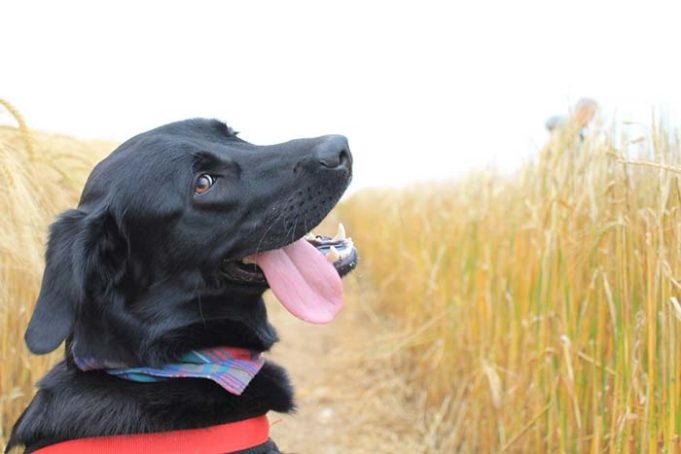A dog’s heavy panting isn’t always a medical emergency; however, you should know how to check whether it's something that needs your attention and what to do.
After playing or exercising, a dog usually pants to naturally regulate its body temperature. It may air short rapid breaths and hold out its tongue to let the water from its body evaporate. This is how dogs keep their temperature from rising after such a strenuous physical activity since dogs don't sweat as humans do. But when the panting becomes excessive, it might be a sign that something else is wrong.
Difference Between Normal and Excessive Panting
It's easy to determine the differences between normal panting and excessive panting in dogs. Excessive panting is usually accompanied by a loud noise and the dog will appear to be exerting so much more effort.
In a normal pant, however, your dog may pause to take a good deep breath and resume to short rapid breaths. This is also how the dog helps his body level off the oxygen. In a few minutes, your dog will look calmer and return to his normal state.
Now, the warmer your dog feels, the harder the panting becomes. It's this type of panting that you should really be concerned about.
1. Heatstroke
 Your dog might be suffering from a heatstroke if the panting becomes heavy and loud. His eyes will look glazed and wide, while his gums and tongue will be red and bright.
Your dog might be suffering from a heatstroke if the panting becomes heavy and loud. His eyes will look glazed and wide, while his gums and tongue will be red and bright.
If this happens, immediately move your dog to a shaded and well-ventilated area, and then give him water to drink. If you're at home, put the dog in the tub or shower and let the water run. Be careful, however, not to submerge the dog in the water to prevent drowning. You may also try to cool down the dog's neck and head with a wet towel.
To avoid a heatstroke, don't take the dog outside if the weather is too hot. This condition can rapidly escalate if the dog is not attended immediately. Heatstroke in dogs can lead to the swelling of the brain, seizure, blood clotting, and kidney failure.
2. Anxiety or Fear
If your dog is anxious, he will pant heavily because of stress or discomfort. Along with the excessive breathing, the dog will also pace, lick himself and won't stay still. He might even cry and tremble or try to find a hiding place.
You might recognize this fearful behavior in your dog whenever he hears loud noises, thunderstorms or fireworks. However, if this behavior becomes chronic, it can affect his overall well-being. Make an appointment with your vet or ask for a recommendation of a trainer who could help your dog overcome his fears.
3. Pain and Discomfort
 If the heavy breathing doesn't go away even if you've given the dog water, toys, and some tender loving care, then he might be suffering from a pain or discomfort. Because your dog cannot directly tell you that he's feeling bad, then you should watch out for cues from his behavior.
If the heavy breathing doesn't go away even if you've given the dog water, toys, and some tender loving care, then he might be suffering from a pain or discomfort. Because your dog cannot directly tell you that he's feeling bad, then you should watch out for cues from his behavior.
The pain could be anything from a stomach upset, a toothache, or an injured leg. Bring your dog to the vet as soon as possible.
4. Poisoning
If your dog vomits as he pants heavily, then he might have eaten something toxic. There are lots of stuff around your house and backyard that can be poisonous for dogs, which he could easily have access to this when he's sniffing and snooping around. Go to the vet right away to take care of this emergency.
Once you're back home, make sure to keep cleaning materials inside cabinets and keep the trash bin tightly shut. Scour your backyard for toxic plants as well, so that your dog won’t accidentally eat it next time.
5. Illness
Your dog might be showing signs of a serious condition in the lungs or heart if he’s panting is bothersome. So it's best to get a medical diagnosis especially if you have a senior dog. Early detection can help the dog heal faster from whatever is ailing him. Dogs can develop Cushing’s disease, dilated cardiomyopathy or laryngeal paralysis. One of the symptoms of these conditions is heavy breathing and excessive panting.
READ MORE: Excessive Panting in Dogs – What It Means & What You Should Do













